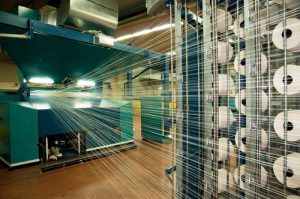In current times, fashion is one of the most profitable industries. In many countries, people who start textile plants end up making huge profits since the demand for textiles is increasing. This can be attributed an increasing population, as well as the fact that more and more people are becoming middle class citizens.
In addition to the demand for textiles rising, it should also be noted that the demand for quality is also rising as well. This means that when you intend to start a textiles plant, you need to do as much as you can to ensure that you end up with high quality textiles. In order to do this, you will need to use a holistic approach, and to ensure that each aspect of the plant is geared towards quality.
The issue of fasteners
One of the issues that are commonly forgotten when doing this is the quality of fasteners. You will need fasteners for many things in such a plant, including putting together the machinery. However, you also need to keep in mind that how you select the fasteners may also affect the quality of your textiles. Keeping this in mind will make it easier for you to make the right decisions regarding this. Some of the ways in which fastener selection will affect the quality of the fabrics include:
Through staining

There are times when fasteners will end up staining the fabrics they come into contact with. A good example of this is when you use fasteners that are easily corroded. In such cases, the rust may end up rubbing on the fabric, resulting in staining. In addition to that, there are some metals that will absorb some of the colors from previous fabrics, and then stain the subsequent fabrics they come into contact with. To avoid this, you should consider using fasteners that are inert, so that they won’t corrode. Aluminum socket head cap screws and Inconel hex nuts are good examples of this.
They could tear the fabric
In addition to that, the fasteners may end up tearing the fabrics they come into contact with. This could either be in the form of an obvious tear, or a very small one that is not visible but which will result in damage to the fabric in future. The commonest cause of this is when you use fasteners that are not flush with the surface, or which have very rough edges. The best way to avoid this is by making sure that the technique used in fastening is correct.
With all the above in mind, the key issue you should remember is that when you are setting up a textile plant, you should never take your fasteners for granted. Always figure out the scenario in which they will be used, and then ensure that they are of a high enough quality to be a perfect fit in such a situation. This way, you can avoid most of the problems above. Other effects of this include reduced running costs, which will translate to lower production costs.
